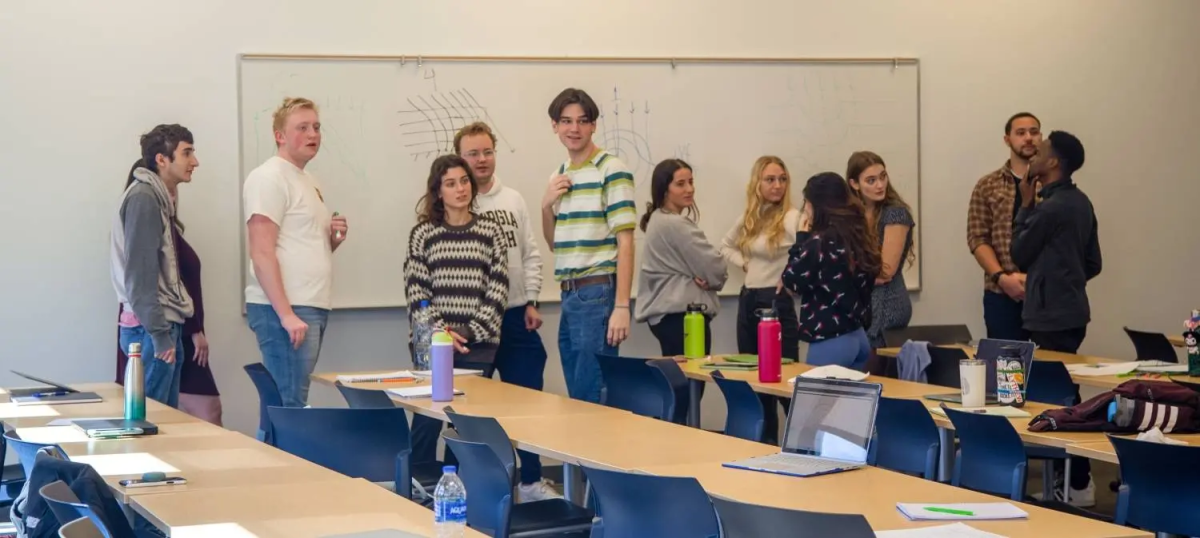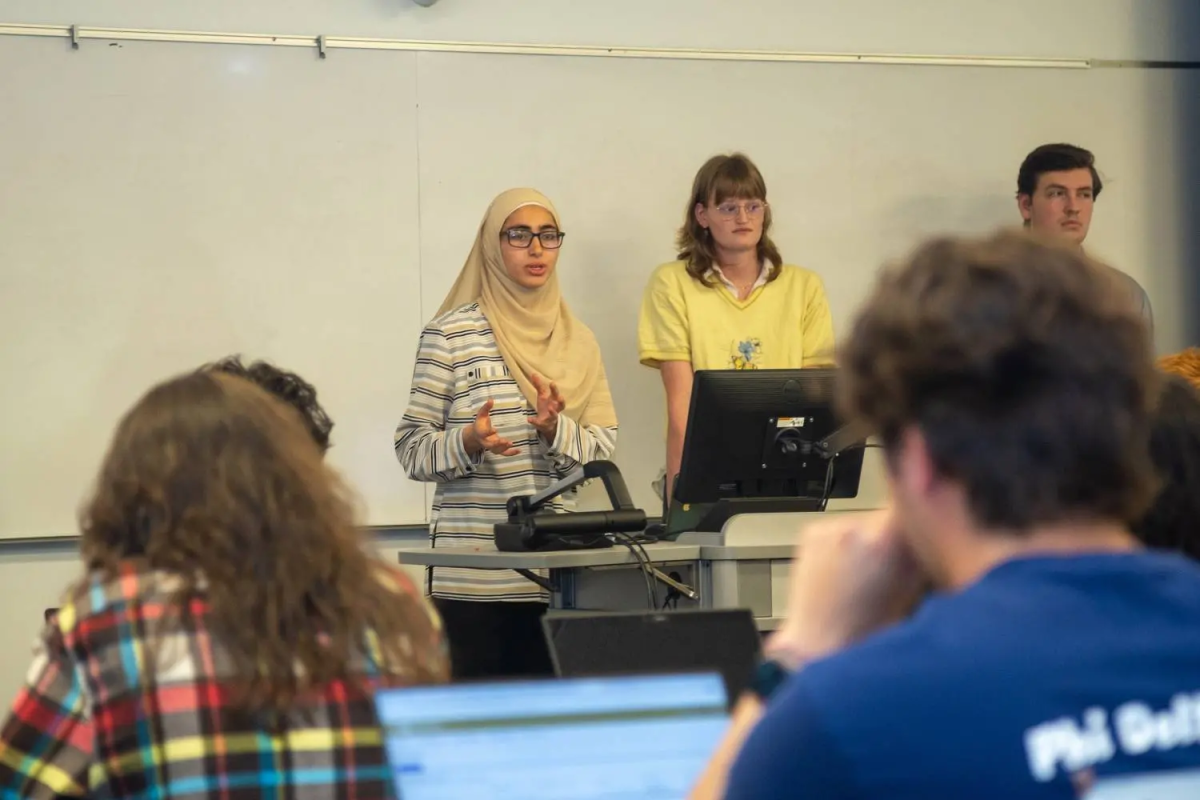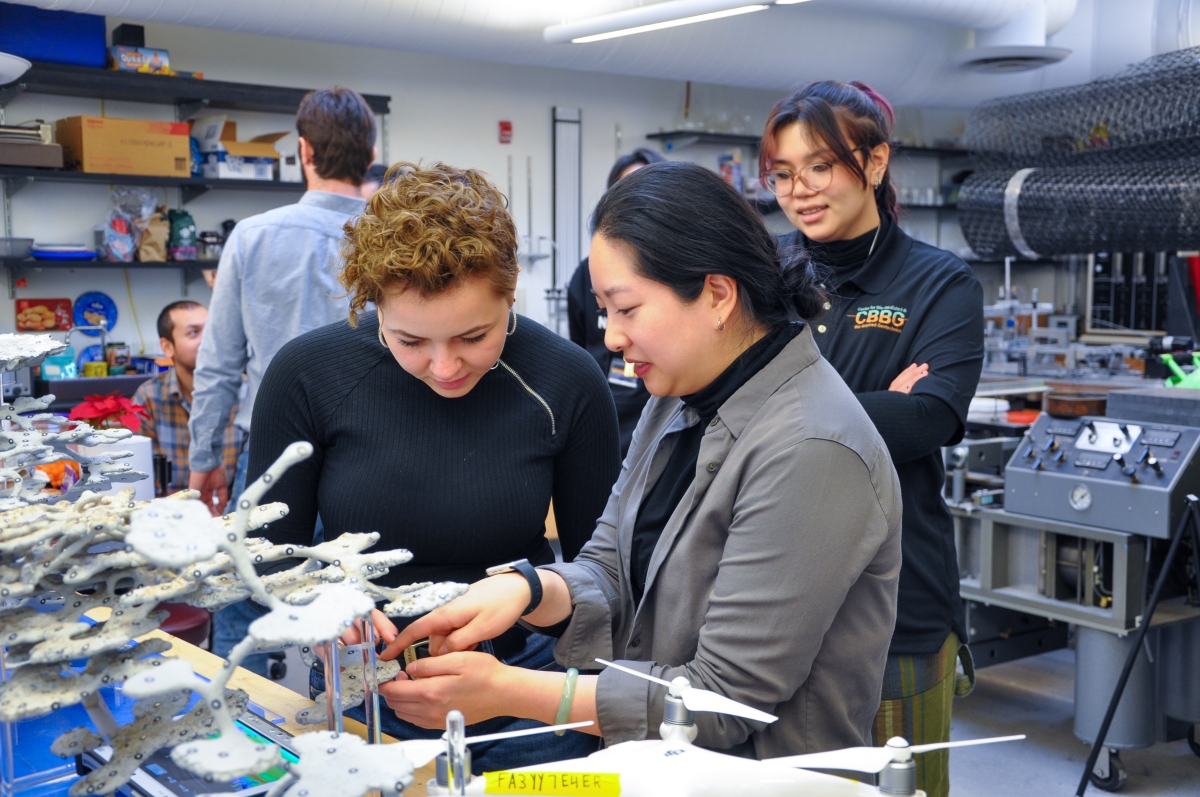
The School of Civil and Environmental Engineering is engaged in a multi-year effort to improve the undergraduate curriculum. We are working to increase our students’ sense of belonging to the School, and the profession of civil and environmental engineering; instill in our students an entrepreneurial mindset and confidence; facilitate story-driven learning, and engage in faculty development. All of these initiatives lead to our overarching goal of educating holistic engineers with an entrepreneurial mindset ready and able to use the skills they develop to solve problems, improve the human condition, and add value to society. These innovations are supported by the National Science Foundation and the Kern Entrepreneurial Engineering Network. Learn more about these programs and our progress thus far:
National Science Foundation – Revolutionizing Engineering Departments (RED)
In 2020, the School was awarded the five-year, $1 million RED grant. This initiative supports radical changes to engineering education to help students establish identities as professional engineers. The centerpiece of this program in CEE is a spine of four courses that anchor the undergraduate experience:
- Exploring CEE provides a broad overview of civil and environmental engineering topics, and introduces first-year students to a range of professionals and leaders in the field and what they do.
- CEE Systems studies the connections between infrastructure systems and sustainability and explores what it takes to create sustainable infrastructure systems in various contexts.
- Data Analytics applies emerging computational tools to enhance the study of civil and environmental engineering.
- Capstone Design gives seniors the opportunity to apply their knowledge to a semester-long design project.

The classes, taken over the course of four years, focus on interactive problem-based learning around the societal grand challenges that civil and environmental engineers work to address. They feature elements of communications and team development, include reflective teaching and learning, and aim to create a greater sense of belonging within the School and the profession. The grants have enabled the School to hire a learning scientist to support the change initiative including faculty development.
Kern Family Foundation - Kern Entrepreneurial Engineering Network (KEEN)
The $3.1 million KEEN grant was awarded to the College of Engineering in 2021. The three-year grant with a one-year extension provides about $630,000 for the School of Civil and Environmental Engineering.The School of Civil & Environmental Engineering is infusing entrepreneurially minded learning (EML) early and in a vertically integrated manner across the curriculum. We are doing the following:
- Pedagogical Development: We are applying the three Cs – Curiosity, Connections and Creating Value – in developing a spine of four courses in order to cultivate EML alongside problem solving/finding around the global grand challenges at increasing levels of technical maturity. We are applying story driven learning (SDL) to help students develop their professional identity and to help teams augment value creation through reflective collaboration. We are also applying value sensitive design to equip students to engage effectively and systematically with stakeholders
- Pedagogical Implementation and Evaluation: We are implementing four vertically integrated courses within the curriculum and evaluating the change they affect in the CEE environment; including changes in the students’ academic performance, impact (that is, activity tailored toward creating value for self and others), and retention.
- Faculty Development: We are implementing programming to support faculty to lead and assist CEE students in EM development. Ultimately, we will graduate EM Engineers, that is, robust engineers with enhanced capacity to create societal, economic and personal value.
Student Engagement
The RED and KEEN initiatives have supported over a dozen fellows (undergraduate and graduate students) who have received mentoring in understanding the RED and KEEN goals, and in the development of an entrepreneurial mindset. Fellows have also worked with CEE faculty in course development and as teaching assistants.
Impact
These initiatives have significantly increased student retention. Out of the 60 first-year students who took the Intro to CEE course in Fall 2022, only five changed their major. Overall, the number of first and second year students who changed their major has been reduced by 50 percent since 2017.

I have found that I am able to better articulate what I want to do after just a few weeks in your class, and I am very grateful for that.
— Caroline Delcroix, student in the Spring 2023 Civil Engineering Systems Course
Publications
We’ve seen great results through these programs that we want to share with others in higher education. Below is a selection of peer-reviewed journal articles published by our faculty:
American Society for Engineering Education
Haas, K., Amekudzi-Kennedy, A., and J. Kaiser (2025). Exploring Civil and Environmental Engineering for First-Year Students. American Society for Engineering Education Annual Conference & Exposition. Montreal, CA. https://nemo.asee.org/public/conferences/365/papers/48387/view
Amekudzi-Kennedy, A., Webster, D., Zerbe, E., Burns, S. E., Hunter, M., Melkers, J., and T. Blum. (2025). Effective Practices and Lessons Learned in Managing and Sustaining curriculum and Cultural Change at CEEatGT. American Society for Engineering Education Annual Conference & Exposition. Montreal, CA. https://nemo.asee.org/public/conferences/365/papers/45514/view
Zerbe, E., Amekudzi-Kennedy, A. A., Haas, K., & Webster, D. (2023). Designing Learning Environments for Knowledge, Skills, and Mindset Development. American Society for Engineering Education Annual Conference. https://peer.asee.org/42690
Zerbe, E., Amekudzi-Kennedy, A. A., Haas, K., Simon, R. B., & Shaffer, J. (2023). Applications of Teams and Stories: Augmenting the Development of Entrepreneurial Mindset in Engineers. American Society for Engineering Education Annual Conference. https://peer.asee.org/42274
Zerbe, E., Haas, K., & Muscalus, A. C. (2023). Increasing Students’ Understanding of Stakeholder Perspectives: A Value-Sensitive Design Case Study. American Society for Engineering Education Annual Conference. https://strategy.asee.org/43100
Haas, K., Muscalus, A. C., Zerbe, E., & Simon, R. B. (2023). Incorporating Teamwork Elements into a Course to Improve Learning Outcomes. American Society for Engineering Education Annual Conference. https://peer.asee.org/43646
Kiriazes, R. E., & Zerbe, E. (2022). Department Policy and Programs that Support NCEES FE Exam Prep in Civil and Environmental Engineering. American Society for Engineering Education Annual Conference. https://peer.asee.org/41641
Zerbe, E., Amekudzi-Kennedy, A. A., Haas, K., Grubert, E., Burns, S. E., Tien, I., Watkins, K., Koon, J. H., Simon, R. S., Taylor, J. E., Rosenstein, L. G., & Webster, D. (2022). Early Engagement and Vertically-Integrated Learning: Developing Whole-Person and Entrepreneurially-Minded Engineers. American Society for Engineering Education Annual Conference. https://peer.asee.org/41453
Margherio, C., Amekudzi-Kennedy, A. A., Ferekides, C. S., Svihla, V., Kellam, N. N., Gudivada, V. N., Turns, J. A., Han, Y., Forin, T. R., Ogle, J. H., Mina, M., & Williams, J. M. (2022, Jun 27). Developing and Supporting Faculty Change Agents Through a Community of Practice [Panel]. American Society for Engineering Education Annual Conference, Minneapolis, MN.
KNC:
Amekudzi-Kennedy, A., Watkins, K., Zerbe, E., & Simon, R. (2022, January). Applying Value Sensitive Design to Develop Entrepreneurially Minded Engineers (2022 KNC Session). https://engineeringunleashed.com/card/2954
